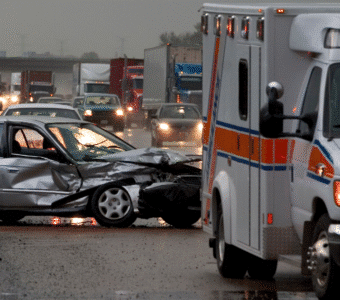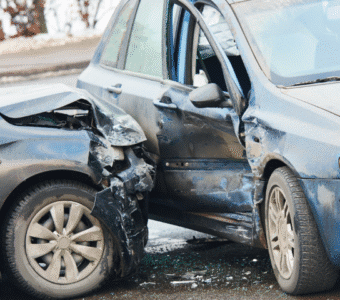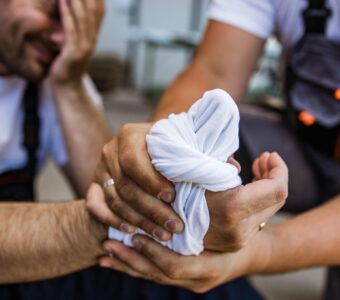
7 Most Common Causes of Motorcycle Accidents
Motorcycles are a fun way to experience traveling – whether you are in the bustle of Downtown Atlanta or are enjoying the air in the Blue Ridge Mountains. Unfortunately, motorcycles are risky due to the lack of surrounding structure for those riding.
Motorcyclists are more likely to suffer injuries or fatalities in accidents than those riding in passenger cars.
One of the best ways to avoid a motorcycle accident is to be aware of the factors that commonly lead to accidents. Here, our motorcycle accident lawyers discuss the 7 most common causes of motorcycle accidents.
1. Left Turning Cars
Around 42 percent of motorcycle accidents are caused by a car making a left-hand turn in front of a motorcycle. Most often, these collisions occur when the motorcycle:
- Passes a car
- Is going straight in an intersection
- Attempts to overtake a car
Drivers often enter an intersection without looking in all directions before making a turn. This is dangerous because motorcycles may be present in blind spots.
2. Unsafe Lane Changing
Drivers must check their blind spots before changing lanes, especially on crowded highways or interstates. Drivers should also use their turn signals. Unfortunately, drivers often do not pay attention or rely solely on their mirrors before changing lanes.
3. Head-On Collisions
Head-on collisions account for 56 percent of motorcyclist fatalities. These accidents are most commonly caused by a vehicle leaving their lane and entering oncoming traffic. For motorcyclists, a split-second decision must be made – hit the car or attempt to avoid a collision. Either of these options is dangerous, and sadly, most of the time the motorcyclist is seriously injured no matter which option they choose.
4. Lane Splitting
Lane splitting is the name for motorcycles who drive in between lanes of traffic. This is common in congested areas or at traffic lights. The act of lane splitting is controversial and some states are setting guidelines for how to safely lane-split. Lane splitting can be very dangerous and can cause accidents due to:
- Close proximity to cars and trucks
- Reduced speed making maneuvering more difficult
- Other drivers not paying attention may not see the motorcycle
5. Driving While Intoxicated
No matter what sort of vehicle you are driving, driving while intoxicated is risky. Intoxication causes a lack of good judgment and decision-making, poor response, and slowed reflexes. Motorcyclists seem to be more vulnerable to this behavior due to the social nature of motorcycling – clubs, outings, events, etc. In recent years, the number of motorcycle accidents involving alcohol has been as high as 43 percent.
6. Speeding
Speeding is a tremendous problem on roadways across the United States. Motorcyclists love to drive fast, which can be a dangerous combination when external forces are at play. In 2014, 33 percent of fatal motorcycle accidents involved speeding. Motorcycles are already risky due to the lack of structural support and protection, but when you factor in speeds of 100 miles-per-hour or higher, any accident can be deadly.
- Speeding can increase the risk of an accident due to:
- Other cars on the road
- Inability to control the motorcycle
- Weather conditions causing slippery road surfaces
- Poor road maintenance
- Inability to slow down for traffic
7. Road Hazards
Speaking of poorly maintained roads, road hazards are another common cause of motorcycle accidents. Safe motorcycling requires balance and a well cared for roadway. When the road is not properly maintained, motorcyclists are at a greater risk of accident and injury. Some of the road hazards that often lead to accidents include:
- Potholes
- Uneven lanes
- Slippery roadways
- Dead animals
- Trash or debris
- Standing water
What to Do After a Motorcycle Accident
If you have been injured in a motorcycle accident caused by any of these factors, contact The Embry Law Firm. Find out about your legal rights and if you have the option of filing a claim to recover your losses. For a free consultation, call us at 844-443-6279.



